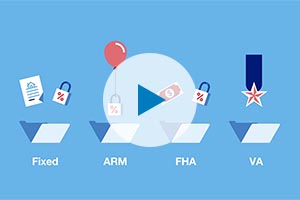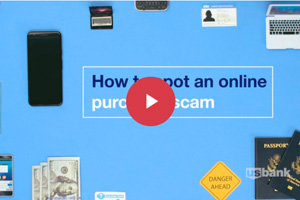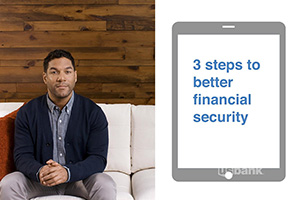
How much life insurance do I need?

Dear Money Mentor: How do I pick a savings or checking account?

10 ways to increase your home’s curb appeal

Is it the right time to refinance your mortgage?

6 questions to ask before buying a new home

Should you buy a house that’s still under construction?

5 things to avoid that can devalue your home

What is a home equity line of credit (HELOC) and what can it be used for?

9 simple ways to save

Is raising backyard chickens a good idea financially?

Here’s how to create a budget for yourself

Understanding guardianship and power of attorney in banking

What’s in your emergency fund?

What you need to know about renting

From LLC to S-corp: Choosing a small business entity

6 things to know about long-term care insurance cost and benefits

Is your employer long term disability insurance enough?

What is Medicare? Understanding your coverage options

8 steps to take before you buy a home

What to know when buying a home with your significant other

Building a dream home that fits your life

Mortgage basics: How much house can you afford?

Mortgage basics: Finding the right home loan for you

Home buying myths: Realities of owning a home

5 financial goals for the new year

How I did it: Turned my side hustle into a full-time job

Retirement plan options for the self-employed

Checking and savings smarts: Make your accounts work harder for you

5 reasons why couples may have separate bank accounts

Common unexpected expenses and three ways to pay for them

It's possible: 7 tips for breaking the spending cycle

Myths vs. facts about savings account interest rates

Closing on a house checklist for buyers

Multiple accounts can make it easier to follow a monthly budget

Is it time to get a shared bank account with your partner?

Don’t underestimate the importance of balancing your checking account

Which is better: Combining bank accounts before marriage — or after?

5 tips for parents opening a bank account for kids

8 steps to choosing a health insurance plan

Key milestone ages as you near and start retirement

How I did it: Bought a home without a 20 percent down payment

5 ways to maximize your garage sale profits

Year-end financial checklist

Pet ownership costs: planning for the unexpected

Housing market trends and relocation impact

Post-pandemic fraud prevention lessons for local governments

Fight the battle against payments fraud

Fraud prevention checklist

How to improve your business network security

Protecting cash balances with sweep vehicles

Changes in credit reporting and what it means for homebuyers

High-cost housing and down payment options in relocation

What corporate treasurers need to know about Virtual Account Management

Crypto + Relo: Mobility industry impacts

For today's relocating home buyers, time and money are everything

5 steps to take before transitioning your business

How to test new business ideas

How to expand your business: Does a new location make sense?

Does your side business need a separate bank account?

Reviewing your beneficiaries: A 5-step guide

How to talk about money with your family

Comparing term vs. permanent life insurance

How to keep your assets safe

What types of agency accounts are available for investors?

Checklist: 10 questions to ask your home inspector

What you need to know as the executor of an estate

Checklist: financial recovery after a natural disaster

Learn to spot and protect yourself from common student scams

7 ways to teach your children to be scam-savvy

How to prevent fraud

How to avoid student loan scams

Protecting elderly parents’ finances: 6 steps to follow when managing their money

4 ways to outsmart your smart device

How to spot an online scam

Money muling 101: Recognizing and avoiding this increasingly common scam

What you need to know about identity theft

What is financial fraud?

5 tips for seniors to stay a step ahead of schemers

Recognize. React. Report. Don't fall victim to financial exploitation

Recognize. React. Report. Caregivers can help protect against financial exploitation

Webinar: U.S. Bank asks: Are you safe from fraud?

Is online banking safe?

How-to guide: What to do if your identity is stolen

How you can prevent identity theft

8 tips and tricks for creating and remembering your PIN

Pros and cons of a personal line credit

3 tips for saving money when moving to a new home

Planning self-care moments that matter (and how to finance them)

Does your savings plan match your lifestyle?

Mobile banking tips for smarter and safer online banking

Adulting 101: How to make a budget plan

You can take these 18 budgeting tips straight to the bank

Save time and money with automatic bill pay

Do you and your fiancé have compatible financial goals?

Personal finance for teens can empower your child

How to save for a wedding

Money Moments: 3 smart financial strategies when caring for aging parents

First-timer’s guide to savings account alternatives

Know your debt-to-income ratio

Overcoming high interest rates: Getting your homeownership goals back on track

For today's homebuyers, time and money are everything

Crypto + Homebuying: Impacts on the real estate market

How I did it: Bought my dream home using equity

Buying a home Q&A: What made three homeowners fall in love with their new home

House Hacks: How buying an investment property worked as my first home

Managing the impacts of appraisal gaps in a hot housing market

How I did it: Built living spaces to support my family

Spring cleaning checklist for your home: 5 budget-boosting tasks

Saving for a down payment: Where should I keep my money?

Your guide to breaking the rental cycle

Checklist: 6 to-dos for after a move

What are conforming loan limits and why are they increasing

Uncover the cost: Building a home

The lowdown on 6 myths about buying a home

4 ways to free up your budget (and your life) with a smaller home

Get more home for your money with these tips

Money Moments: Tips for selling your home

Money Moments: How to finance a home addition

How I did it: My house remodel

Dear Money Mentor: When should I refinance a mortgage?

Beyond the mortgage: Other costs for homeowners

10 questions to ask when hiring a contractor

What is an escrow account? Do I have one?

These small home improvement projects offer big returns on investment

Should you get a home equity loan or a home equity line of credit?

Is a home equity line of credit (HELOC) right for you?

How to use your home equity to finance home improvements

How do I prequalify for a mortgage?

Home equity: Small ways to improve the value of your home

Can you take advantage of the dead equity in your home?

